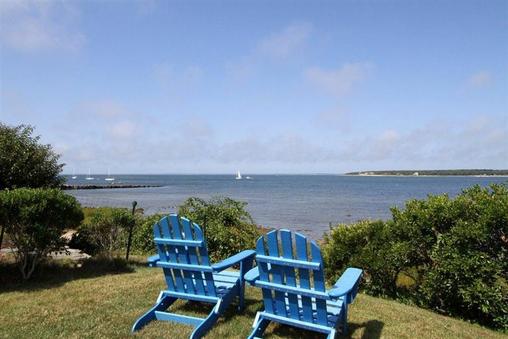 Courtesy: Sotheby's Int'l Realty Courtesy: Sotheby's Int'l Realty Are you tired of booking hotel rooms for your stay on Cape Cod? Is the thought of renting someone else's cottage getting old? If so, it may be time to consider buying your own place on the Cape. You'd have plenty of company. Approximately 50 percent of all properties on the Cape are second homes, with owners living as close as the other side of the bridges, to as far away as Europe. According to the National Association of Realtors, here are some essential considerations: 1. Market Conditions The Housing Industry was the epicenter of the Great Recession and in some markets, homes erased approximately ten years of value growth. After prices bottomed out in 2012, they've crept up slowly and consistently, an incremental improvement financial analysts like to see. Last year buyers across the country spent a median price of $168,700 on a second home which they purchased primarily for enjoyment than to diversify their investment portfolio. The 2014 median home price on Cape Cod is $365,000. 2. Total Cost Think about the annual costs of your primary home and realize you'll have approximately the same financial burden with a second place. Besides the purchase price, there are property taxes, homeowner's insurance, maintenance, furnishings as well as the optional services of a property manager and your transportation costs to get there. On the other hand, if the majority of your vacations will be spent at the house, you can deduct the cost of what you used to spend on hotels, cottage rentals, meals out, etc. When I purchased my second home in Harwich and rented it to vacationing families when I was back in Syracuse raising the family, the costs that were not covered by rentals were wiped out when I factored in what I used to spend when I came to the Cape and rented other people's cottages. In other words, aside from occasional capital expenses, for the 12 years I owned the home before relocating here, my house was free. 3. Proximity According to the NAR, the average distance of a second home to primary home is 170 miles. Indeed, most of those surveyed cited a two hour drive or direct flight as essential in order to use the vacation home enough to justify the costs. 4. Maintenance Unless you expect to spend significant time tooling around in your second home, you'll want to create a team of service providers to keep the place going. Ask your realtor for recommendations of quality lawn-cutters, a tree service, electrician, plumber and handyman. If you want the house polished for your arrival, hire a housekeeper to come at regular intervals. Condominiums eliminate the exterior chores, for super-easy living. Landscaping, trash removal, roofing, and sometimes shingles and windows are covered by the monthly Homeowner's Association (HOA) fee. 5. Area Attractions Cape Cod is all about the beaches and every visitor has their favorite area. In addition to the various beaches, there are villages, restaurants, golf, fishing, nature trails and harbors, all of which celebrate the coastal life. In other areas of the country, university towns tempt second-home owners with a lively intellectual scene of bookstores, theatre and coffee shops. No one area will have every type of offering, but with some thought you'll identify the region that has most of what you want. 6. Furnishings Many second homes are initially furnished with hand-me downs from the primary home. Friends offer items in exchange for time at the house. Craigslist has thousands of used furnishings listed each day, and of course there is the fair-weather garage sale. Today, second homes do not require a trip to furniture store with a big fat check. On the other hand, it takes time and a pickup or large SUV to move used furniture around. While shopping for a second home, ask your realtor if the sellers would consider including the furniture as well. 7. Rules and Regulations Unless the vacation property lie within a gated community or homeowner's association, the use of a second home is no different than a primary home. However, if you wish to purchase a condo and rent it out for the weeks you are not there, be sure to check with the condo association rules and regulations. Most have significant restrictions on rentals and pets. Once you decide on where you wish to be and how you plan to spend your time, a vacation home can be the backdrop for family memories, cash from rentals, and an eventual retirement landing place down the road. You might also like: Self-employed Face Challenges with Second Home Financing Planning a Trip to Cape Cod? Start with Street View
0 Comments
Leave a Reply. |
Maureen Green
|





